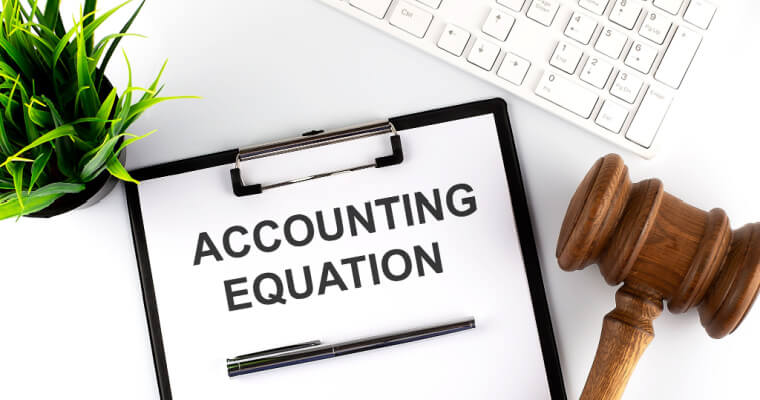Business & Finance
The Accounting Equation Unveiled


The accounting equation is the foundation of financial statements and is the basis for systematically recording financial transactions. It is a fundamental concept in accounting and is used to maintain the balance of a company’s books of accounts. This article will discuss the accounting equation and its significance in financial reporting.
What is the Accounting Equation?
The accounting equation is a simple mathematical formula that expresses the relationship between a company’s assets, liabilities, and equity. The formula is:
Assets (A) = Liabilities (L) + Equity (E)
In other words, a company’s assets equal its liabilities plus equity. The equation is also sometimes expressed as:
Equity = Assets – Liabilities
The accounting equation is based on the principle of double-entry bookkeeping, which requires that every financial transaction has two equal and opposite effects on a company’s accounts.
Assets are economic resources a company owns and controls, expected to generate future economic benefits. Examples of assets include cash, accounts receivable, inventory, property, plant and equipment, and investments. Assets are recorded on a company’s balance sheet.
Liabilities are obligations that a company owes to others and are expected to be settled in the future by transferring assets or providing goods or services. Examples of liabilities include accounts payable, loans, bonds, and salaries payable. Liabilities are also recorded on a company’s balance sheet.
Equity represents the residual interest in a company’s assets after deducting liabilities. It is the amount the owners or shareholders have invested in the company, plus any earnings or losses retained in the business. Equity is also recorded on a company’s balance sheet.

Are You Stuck with Your Accounting Homework?
Master Writers is a team of experienced accounting professionals who are dedicated to providing top-notch accounting homework help to students. Our team of writers consists of individuals who deeply understand accounting principles and concepts and are proficient in various accounting software. We offer comprehensive accounting homework help, including financial accounting, managerial accounting, cost accounting, auditing, and tax accounting. With our vast knowledge and expertise in the accounting field, we are well-equipped to provide students with accurate and timely solutions to their accounting homework assignments.
We also ensure that all our assignments are plagiarism-free, well-researched, and properly formatted to meet the highest academic standards. Therefore, if you need help with your accounting homework, Master Writers is a perfect choice.
Importance of the Accounting Equation
The accounting equation is essential in financial reporting, ensuring the balance sheet remains balanced. If the equation is not balanced, it indicates an error in the accounting records. Therefore, the accounting equation is used as a check and balance to ensure that financial statements are accurate and reliable.
The accounting equation is also important in decision-making. Investors, creditors, and other stakeholders use financial statements to decide about a company’s financial health and future prospects. The accounting equation provides valuable information about a company’s financial position, indicating its ability to meet its obligations, its risk level, and the potential for future growth.
Examples of Accounting Equation Applications
Let’s look at some examples of how the accounting equation is used to record financial transactions:
- Purchase of Equipment
Suppose a company purchases equipment for $10,000 by taking out a loan from a bank. The accounting equation would be:
Assets = Liabilities + Equity Equipment = Loan + Equity
In this example, the company’s assets increase by $10,000 (equipment), while its liabilities increase by $10,000 (loan). Equity remains the same.
- Sale of Goods
Suppose a company sells goods for $5,000 and receives $2,500 in cash, with the balance to be paid in 30 days. The accounting equation would be:
Assets = Liabilities + Equity Cash + Accounts Receivable = Equity + Revenue
In this example, the company’s assets increase by $2,500 (cash) and $2,500 (accounts receivable), while its equity increases by $5,000 (revenue).
- Payment of Salaries
Suppose a company pays salaries of $2,000 to its employees. The accounting equation would be:
Assets = Liabilities + Equity Cash = Equity – Expenses
In this example, the company’s assets decrease by $2,000 (cash), while its equity decreases by $2,000 (expenses).
Final Remarks
The accounting equation is a fundamental concept in accounting that serves as the foundation for preparing financial statements. It shows the relationship between a company’s assets, liabilities, and equity and how changes in one category affect the others. Understanding and applying the accounting equation is essential for accurate financial analysis, decision-making, and business growth. Using the accounting equation, businesses can effectively track and manage their finances, identify trends, and make informed decisions about future investments.
With the help of Master Writers, students can gain a deep understanding of the accounting equation and develop the skills needed to excel in the accounting field. With our team of experienced accounting professionals, we provide top-notch accounting homework help that will enable students to achieve their academic and career goals.

Accounting Homework Workload Is Getting Tougher?
Opt for academic relief with our professional service.

